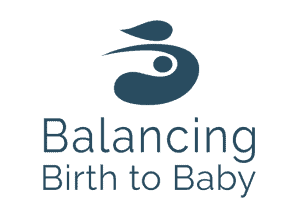
I am often asked about birth plans by the couples in our classes and by my doula and coaching clients.
If you don’t know, a birth plan is something that women and their partners write about what they hope will occur during their labour, what they hope to avoid, and anything else they feel is important for their caregivers to know.
 I have seen all kinds of birth plans – from complex step-by-step plans to one paragraph of information. If you google birth plans you will find a plethora of examples and ones that you can download. Looking through all the examples can feel overwhelming! Often filling in a birth plan form can feel like a test – make a decision and check off the right box. Many women and couples feel like their birth preparation is complete once they have finished filling in their birth plan. Later they may feel that checking those boxes did not prepare them enough for the unexpected in their birth.
I have seen all kinds of birth plans – from complex step-by-step plans to one paragraph of information. If you google birth plans you will find a plethora of examples and ones that you can download. Looking through all the examples can feel overwhelming! Often filling in a birth plan form can feel like a test – make a decision and check off the right box. Many women and couples feel like their birth preparation is complete once they have finished filling in their birth plan. Later they may feel that checking those boxes did not prepare them enough for the unexpected in their birth.
Here is my advice when I am asked about birth plans:
The first step in writing a birth plan is NOT filling out a form on the internet.
The first step begins by asking yourself:
What is really important to me in my birth experience?
Writing a birth plan can give you a feeling of control over your birth especially if you are feeling fearful or powerless about your birth. However, there is a risk that if your birth does not go as your birth plan, you will be left with feelings of disappointment and loss.
By taking the time to check in on your birth plan motivation, you can avoid or minimize disappointment. A piece of paper listing what you hope will occur in your birth cannot protect you from the twists and turns that your labour will take. When you are able to recognize that, you can become concise and matter of fact in what you hope your birth will include.
 Once you have explored your motivates behind writing a plan, start to work on ways to shift from fear, avoidance, control, or helplessness. Take the time to educate yourself on your options if birth does not go as you had hoped. There are many things that can occur during labour, however, the solutions to those issues are only a few. Looking into what your caregiver and local hospital policies are on induction, pharmacological pain management, and cesarean delivery will help you prepare. Finding out what is routine, what is optional, and what is no longer standard care is important. Read some current well-balanced books on labour and delivery, and take a class to learn your options.
Once you have explored your motivates behind writing a plan, start to work on ways to shift from fear, avoidance, control, or helplessness. Take the time to educate yourself on your options if birth does not go as you had hoped. There are many things that can occur during labour, however, the solutions to those issues are only a few. Looking into what your caregiver and local hospital policies are on induction, pharmacological pain management, and cesarean delivery will help you prepare. Finding out what is routine, what is optional, and what is no longer standard care is important. Read some current well-balanced books on labour and delivery, and take a class to learn your options.
Writing a birth plan should only occur once you know your motivation, your options, AND how you feel about them. And perhaps once you have done this work, you may feel that you don’t need to write a birth plan after all.
If you do decide to write one, make your plan concise. Caregivers usually do not have time to read anything that is too long. A few short paragraphs on a page will help them to do their best to honor your wishes, so only share the requests that are most important to you. Try to keep the plan as simple as possible and put your wishes in order of importance.
Do not include preferences that are performed as part of standard care. For example, at my local hospital delayed cord clamping has become standard care, so I always advise my clients not to include that, as it will most likely happen.
Take care in the language of your plan. Using phrases like “if medically necessary” will tell your caregivers that you are open to changing your plans if needed. Avoid negativity and having a closed plan. Use terms like “we hope to” instead of “under no circumstances”.
Include more about what you plan to do rather than stating what you hope to avoid. For example:
“We hope to avoid an epidural, unless medically necessary. Instead, we will be using an exercise ball, position changes, massage, and our doula’s support to handle intense contractions.”
This tells your caregivers that have done your homework and have a plan. This makes it easier for them to support you.

If you have any sort of history with trauma or abuse, please share this in your plan. Letting your caregivers know this information up front will help them help you. For example:
“Due to a history of abuse, I request that the privacy of my hospital room be maintained at all times. Please explain every step of what you are doing during vaginal exams. Please do not begin the exam until I have told you I am ready.”
Once you have written your plan, share it with your medical caregiver at your next appointment. Ask them for any feedback. Adjust your plan if needed. Then make copies of the plan: one for you, one for your caregiver at your next appointment, and one for your doula or any other support people who will be at the birth. Bring extra copies in your labor bag, to share with hospital staff.
Working through your need for a birth plan and a plan itself with a BIRTH PREPARATION COACH can make all the difference in your experience. It can also help you to not feel alone, especially if this process feels overwhelming.
Book a free discovery call to see how working with a coach is the right step in your birth and postpartum preparation! Book the call HERE

